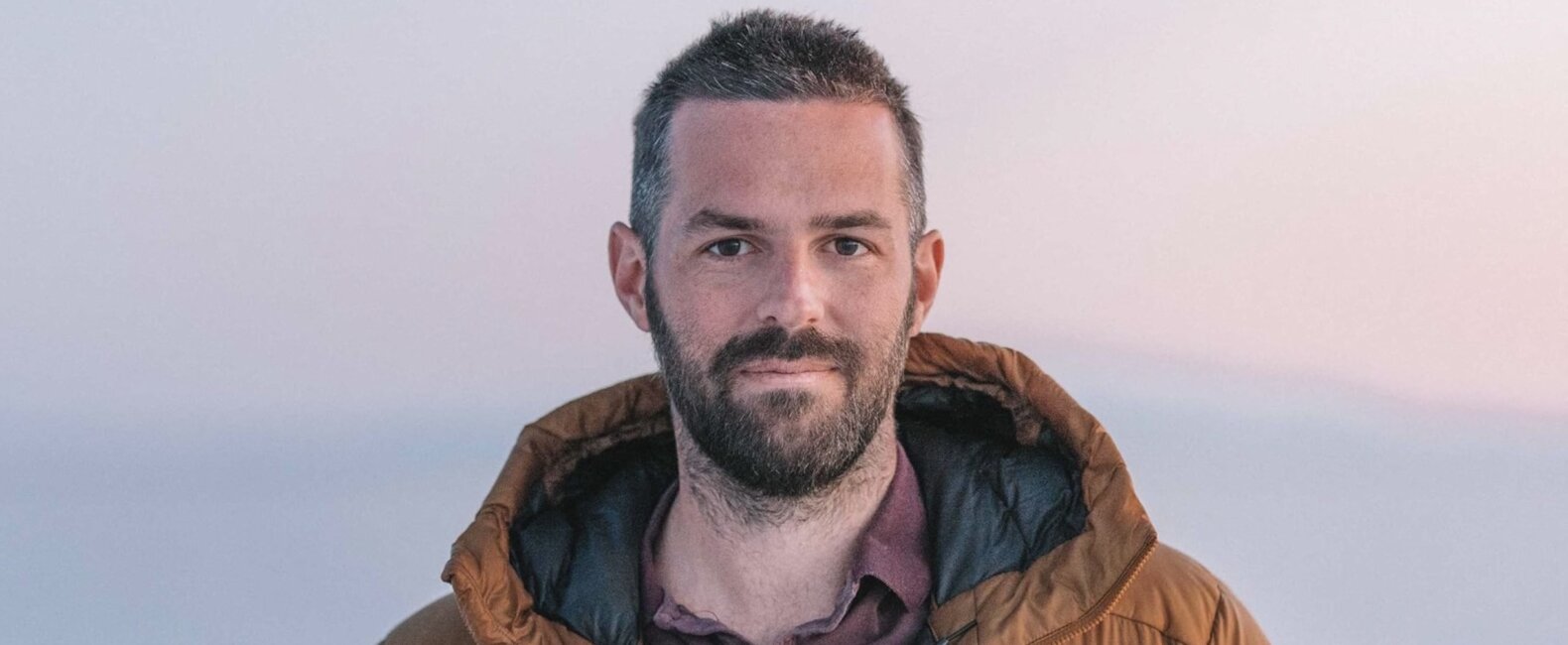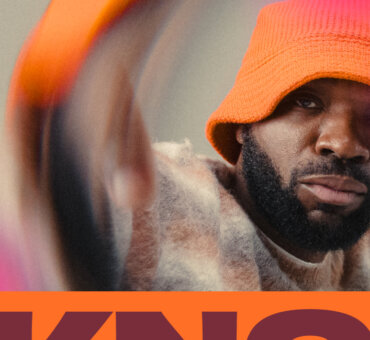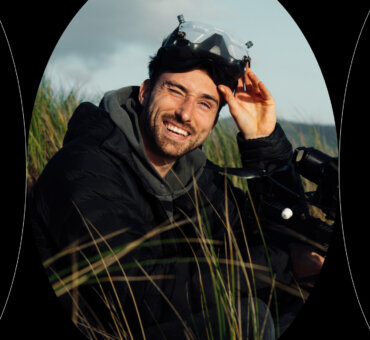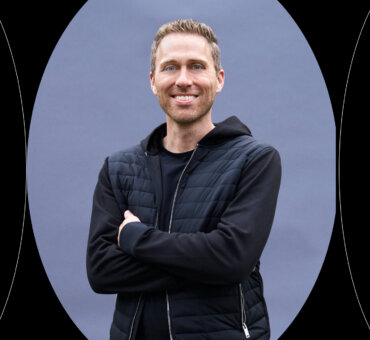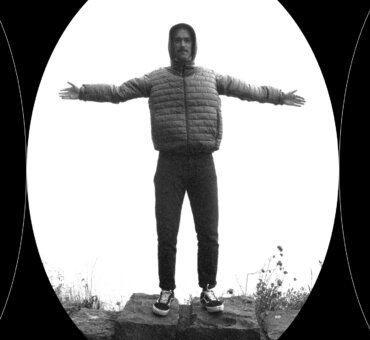Whether he’s behind the lens or in the cockpit, filmmaker and pilot Brady Skye is here to take his audience along for every adventure. Read his interview below to learn more about what sparked his love for film, his favorite project to date, and how he finds the right music for his films on Musicbed.
Musicbed: What sparked your passion for filmmaking/storytelling?
Brady Skye: I vividly remember seeing Titanic in theatres in 1997. I was 10 years old, and it completely blew me away. I ended up watching it 25 times when it came out on VHS. I couldn’t believe the magic of filmmaking and how much it moved me. But growing up in a family completely removed from the gates of Hollywood and the depths of the word “cinema,” it took me a long time to even dream of being able to work on a good film. I had dedicated myself to classical music, painting, and photography throughout my adolescence but it really wasn’t until college that I dove into cinematography and crafting motion pictures. I had an assignment to try to take some old black-and-white footage and craft it into whatever I wanted. So like everything else, I gave it 110%, and my professor loved it.
As college went on, many of my professors encouraged me to keep making films, and I spent a lot of time working on as much as I could outside of what was assigned in class. I fell in love with the freedom to film and edit whatever I wanted. It was a medium that ignited every sense. I know the desire to create something has always been there since I was born, but the medium of film eventually took over simply because of how difficult it is and the complex relationship between pictures and sound. There is just so much to it and so many decisions have to be made. The process fascinated me just as much as the result. Films like Jurassic Park, Apollo 13, Indiana Jones, Jaws, Alien, Blade Runner, and Dances With Wolves had such a big impact on me. I couldn’t imagine not telling a story like that. It became the most powerful way to experience a story, and I loved trying to convey people and places the way that I saw them. But I’ve never felt like I do it for an audience. It’s always been something I’ve had to do for myself.
What keeps you motivated and creatively inspired?
This is such a hard question to answer. You never really know where inspiration is going to come from. Sometimes it’s from a personal life experience, being in nature, or just someone you meet. I think what keeps me most creatively inspired is escaping reality in my imagination. I often feel I live in a world that lacks adventure and is becoming increasingly mundane with a cookie-cutter American dream fed to us from elementary school into college. We hide in our homes behind screens but I’m always longing for a real adventure. It can be hard to get to that these days, and it might even cost you a lot of money to get there. When I dive into a project, whether that means writing one, directing one, or filming one, I feel like I can immerse myself in a world that has that daring adventure, romance, and thrill ride that can be hard to find in reality but feels very real to me in my imagination. Sometimes the desire to create change or help a community somehow can be motivating as well. I have worked with several nonprofits and indigenous groups because I caught their vision. When you catch someone’s vision, and you understand what they are trying to do and why it’s important, you get excited, and that excitement can lead to inspiration and taking action. Oftentimes I find motivation from music as well. When I hear something, I start to visualize what could be taking place with that score. It sparks a ton of ideas, especially if it’s a song that isn’t popular and no one has heard before, like a talented actor who hasn’t really made their debut yet.
What makes a story visually appealing? What role does music play in storytelling?
I think what makes a story visually appealing is when you spend the time being intentional about what you are capturing. When we look at so many “older films” they dove deep into writing the cinematography and the mise-en-scene of that story. In more modern movies, I see so much less of that. I see a lot more shooting for coverage, and less carefully selected camera angles, blocking, and focal lengths with an approach to “get a scene done” as quickly as possible to get the movie done and market it and move on. I think when someone takes the time to study the foundation of cinematography and understands why certain rules work so well, they will create something much more visually appealing. And I don’t want to discredit all of the other crucial aspects that go into it all like the art department, color palettes, wardrobe, design, and prop mastery.
Music can make or break a film. Every single note that is played and instrument that is used affects your film in ways you may not even imagine. One of the best examples of music in a film is of course Jaws. They had so many issues with that animatronic shark and John Williams said “Let the music be the shark.” He is the perfect example of someone who knows how powerful music can be in a film to the point where he literally said the music is a character. When you watch Jaws, you can feel that music as the main character in your film. The music is actually one of the things we all remember most from that film – and the same with Star Wars, Indiana Jones, Titanic, The Godfather, E.T., Jurassic Park—the list goes on. The music was so well crafted and selected in these films that we still celebrate those tracks decades and decades later. Now, on the contrary, no music can be as important as silence in a musical score. Movies like No Country for Old Men have absolutely no music. But I think we can all agree that is a rarity these days. Most films have music because it helps drive human emotion. It makes us feel something and that’s all we are all trying to do: feel human and connect with each other. Music can take an ordinary scene and make it extraordinary. And like I said before, it is also where I find a lot of my inspiration, and begin imaging scenes taking place with each song I hear.
What elements do you think are essential for crafting a compelling story?
All of them. Writing, directing, casting, acting, cinematography, set design, wardrobe, hair and makeout, locations, sound effects, music—everything that brings an idea to the screen. But of course, this is all subjective to what kind of story you are crafting. So it really depends. The most important element in your story is your imagination and believing it happens. Unless you have a ton of money, pretty much everything is against you, so you have to want to tell it so badly you just can’t imagine not telling it. It can take years and years for it to actually get into motion.
How important is music in your work?
Music can amplify tension, heighten excitement, evoke nostalgia, create happy tears and sad tears, and inspire. I use music in just about every video I create, from YouTube videos to commercials, and wedding films to documentaries. It is very important to my work, and I spend a lot of time searching for the right music for my project. Music has always been a big part of my life. I started playing piano when I was five years old and eventually could play classical scores like Clair de Lune from memory. Then I picked up guitar when I was about 11 or 12 years old. I played classical guitar as well and eventually played in a reggae band all around Florida. So music was always first for me before making films.
What advice would you give other filmmakers/creators who are just starting their careers?
Go to film school. One of my biggest regrets was only getting a B.A. and not going to film school. But it’s also very expensive so that can be complicated. As much as I don’t like it and we all want to deny it, filmmaking is a very pay-to-play game. Never stop studying the basics of the craft and trying to apply those “old school” director techniques. Work really hard, experiment with different genres, and see what you enjoy most. Making films can take so much time and energy—make sure you pick projects you really want to work on. Life is short, and time is precious. Work on what you are more passionate about and make the films YOU want to make, not what you want others to see. Another piece of advice is to not obsess over equipment. Focus more on the story. Write some short films and make them happen. The more you make the better you get. That’s just how it works. You’re not going to be really good right out of the gate. We all fail hundreds of times to get the results we’re looking for. Get a decent camera, tripod, and a 35mm or 50mm lens. You can tell incredible stories with just one lens. Don’t let your lack of equipment distract you from the most important thing – telling a good story. Write a story based on where you live, who you can get to be a part of it, and what locations you have access to. Use available light and minimal dialogue. You have to think smart when you’re on a low budget.
How do you find the balance between pushing boundaries creatively and delivering what your client wants or audience wants to see?
This is a tough one to answer because it really depends on the client. Some clients are just going to give you more creative freedom than others—that’s just how it is. When I get clients that give me creative freedom, I’ll run wild with ideas. What has helped me balance the restrictions I have so often had in the commercial world is having my passion projects separated from work. Doing what I enjoy on my YouTube channel or working on a short documentary without any creative restrictions is important for an artist to remember why they create. If you only focus on creating for other people or for money, there’s a good chance you’ll eventually get burnt out and lose your passion for it.
What is the most challenging aspect of being a filmmaker/creative?
I can’t speak for everyone but for me personally, the absolute most challenging thing has been finding the resources. It’s a lot easier to get a film made if you have them. Why? To get more people on board. I am a strong believer in working with a team instead of alone, but because of the lack of resources, I have had to work with extremely small teams or alone on most of my projects so far. The goal, of course, is to change that and be able to get on projects with more people involved. Filmmaking is supposed to be a collaborative effort and it’s that chemistry between creatives that can create much better results than someone can produce solo.
What’s your favorite project that you’ve worked on?
My favorite project I’ve worked on so far is my feature documentary Beyond the Ruins. It takes viewers on a captivating journey that delves into the essence of Yucatecan Maya life in the 21st century. This feature-length documentary unfolds against the backdrop of Coba, the second-largest Maya ceremonial center in the ancient world. From this archaeological marvel, the film ventures deep into the lush jungles and intimate villages, offering a poignant exploration of two indigenous families committed to preserving their rich heritage. At its core, Beyond the Ruins weaves a tapestry that illuminates the profound interconnectedness of existence, as mirrored in the ancient Maya philosophy of “in lak’ ech, a lak’ en”—where “I am you; you are me.” The film not only resurrects a vibrant but often overlooked culture; it also invites viewers to contemplate the universal lessons embedded in Maya wisdom. Through this evocative lens, audiences discover not only a living legacy but also a source of inspiration to enhance their own quality of life.
The entire soundtrack of this 73-minute film was provided by Musicbed.
How do you search for music on Musicbed? What are some tips that you’d give other filmmakers to search on Musicbed?
This really depends on what kind of music I’m looking for. I use the Mood filter a lot and Attributes. For example, if I want some background music for a YouTube video I’ll do a combination of something like Chill / Beats / Instrumental / Ambient. Or sometimes I’ll do Dance / Instrumental for something more upbeat. But one of my absolute favorite features is the key that a song is in. I have used the Advanced Key feature to find multiple tracks that are in the same key so I can seamlessly blend them when I am editing. When using Cinematic songs in the same key, that let’s say feature strings perhaps, I can chop them up and use different parts of different songs but it sounds like one score because they are in the same key. That’s a great feature some people may not have used yet.
Why do you utilize Musicbed in your work?
Back in 2018 when I was really starting to dedicate myself to creating videos for YouTube, I spent a lot of time digging through music licensing sites, and long story short, I found that Musicbed selection was above everyone else’s. I resonated with their roster of artists and the talent coming out of Musicbed so I chose to use Musicbed for all of my music moving forward. I used to have multiple subscriptions to multiple websites, which is fine, but I like to try to be as minimal as possible and would prefer to go to one place to find something that moves me instead of having to dig through multiple sites. I have used ArtList, PremiumBeat, Pond5—you name it. I always kept coming back to Musicbed. The artists they pick and the songs they curate are gems that I just wouldn’t have otherwise found out about.
—
Explore a curated playlist of Brady’s go-to music he uses in his films—available to license only on Musicbed.















































































